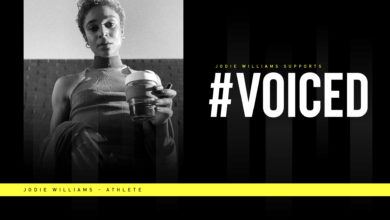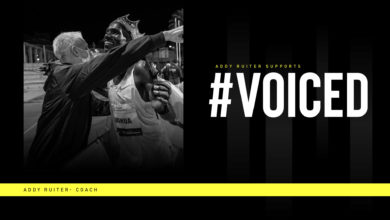Country: Brazil
Profession: Former triple jumper
Career highlights:
- 2004 and 2008 Olympic finalist
- 2008 World Athletics Final silver medallist
- 2007 World Championships silver medallist
- 2007 Pan American Games gold medallist
- 2006 World Indoor Championships silver medallist
- 2006 IAAF World Cup silver medallist
- 2005 World Athletics Final silver medallist
- 2004 World Indoor Championships silver medallist
- 2003 Pan American Games silver medallist
- 2001 Universiade bronze medallist
Jadel made his international debut in 2001 and in 2007 he broke the 32-year-old national and continental record with a jump of 17.90m. He also holds the Indoor South American record of 17.56m, set at the 2006 World Indoor Championships.
In 2013 he retired from athletics, moving to the Canadian city of Edmonton to try his hand at bobsleigh. He helped Brazil qualify for the 2014 Winter Olympics but didn’t make it to Sochi himself.
In 2020 Jadel permanently moved to the USA, where he now works as a coach, partnering with primary schools where he runs an athletics development programme. He has been married for 17 years and is a father to three beautiful children.
Can you describe the most technical part of the triple jump (for us non jumpers!)?
Triple jump comes very naturally to me – as soon I start to jump the movement seemed to flow and so I didn’t have to worry too much about my technique.
But, I was also very lucky that I had coaches who understood my body and what techniques work better for me. I was coached by Peter Stanley, who guided Jonathan Edwards to breaking the World Record, and Peter knew how to adjust my speed for the right technique even though I was taller and heavier compared to other jumpers.
The challenge for me was avoiding injuries while training. I had to pay a lot of attention on how I landed and how to use my hips and knees during the jump.
Undergoing surgeries and losing sponsorship is a tough time in any athlete’s career, what support would you say athletes need most during this time?
In my case my injury was used as an excuse to put me down. There were political factors at play and I had issues with our federation who had an influence on my sponsorships, so I ended up losing sponsors despite the fact that I was still number one in South America when I got injured and underwent surgeries on both knees.
If you don’t do well and your performance is declining, then of course they have every right to adjust or cancel the sponsorship, and I believe the sponsorships should be based on an athlete’s performance, not influenced by politics. Athletes in many countries face the same challenge, although I think it is better in some European countries where if you have good results and get injured, you still keep your sponsorships.
I love the case of Allyson Felix and Nike: they wanted to reduce the value of her sponsorship saying that she is older and might not perform better after having a child. But she proved them wrong and won more Olympic medals in Tokyo. So, for athletes who might be going through this, keep a clear mind and focus on your goals and not what others think of you. If you train well, you will compete well and, as longer as you are healthy, nothing can stop you.
Retirement can be tough transition for many athletes, can you tell us a bit about the challenges you faced when you initially retired from competing at the elite level?
It was extremely hard for me. I didn’t stop competing because of injuries or because I wasn’t able to perform well. After my troubles with the federation and losing sponsors, I had to pay for my training and getting myself to competitions. That wasn’t fair on my family, so I decided to retire and find a job so I could be able to provide. It was a very hard decision.
I would advise athletes to save and invest, because the money you are making while competing you might never make again in your life. So, you must be very smart about how you spend it (I know most athletes might not want to hear this message).
But also, don’t forget to enjoy the sport, make friends, and grab any opportunity that comes your way, because 10 years from now you will not be able to turn back time and have these moments again.
You have said that it is very complicated to have social projects in Brazil. What changes would you like to see put in place to develop the sport better in the country?
At the moment things are getting better because all the former Brazilian Athletics Confederation members, who had been in control for over 30 years, have stepped aside. Now we have the opportunity to build the sport in a different and better way. I am currently involved in a program with fellow track and field athletes who have medalled at the World Championships and Olympic Games. We represent the sport and travel around the country raising awareness about the sport and trying to improve its image in the country and the rest of the world. We are aiming to build on the legacy of the Rio Olympics and introduce more Olympic sports in the country. This makes me very happy because we have waited for this for a very long time. As athletes we trained and competed in overseas countries and the program will give athletes a chance to compete in world class events in their home country.
You have also competed as a bobsledder. Can you describe for us how it feels to be sliding down the ice track at that speed?
I am not going to lie, that was very different, scary and dangerous! If you fall out the bobsled you are in trouble… the only protective gear is the helmet, and you don’t want to crash into the ice at that speed. Once you get into the bobsled you are no longer in control, which is so different to triple jump where I was in complete control from my run until I land. I was the pusher in our team, so with bobsleigh you push as fast as you can and jump into the sled.
I did this for one season and helped the team qualify for the 2014 Winter Olympics in Sochi, and I broke the national pushing record. This was also me proving to our Olympic committee that I am a great athlete, after I wasn’t included in the athletics team for the London Olympics. I quit after one season and went back to Track and Field. I doubt I would ever do it again.
What is your favourite home cooked meal?
I do most of the cooking in my house. In Brazil our staple food is rice, beans, and beef. I love these with fried potatoes. I also love spaghetti and sauce – I like to have my spaghetti and sauce in separate dishes so I can mix it to my own liking or taste.


